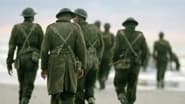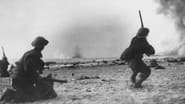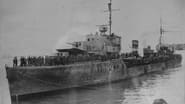SnoopyStyle
This is a documentary of the Dunkirk evacuation over 10 days in the summer of 1940. The British Expeditionary Force is trapped against the coast along with French and other Allies. It is purported to be accurate. There are the shakey cam recreations intersperced with some old footage. There are recognizable actors. It's quite straight forward in its telling. After watching Nolan's Dunkirk recently, this is a good companion piece. It has some more information and the rear guard action that is missing from Nolan's movie. There are compelling real historical figures. It's solid work for TV doc that is compelling to watch all the way to the end.
Robert J. Maxwell
I couldn't watch this program all the way through. It's an important subject, the performances are decent, the reenactments convincing, the interior monologues touching, and the budget was adequate.But it's ruined by the directorial style. The camera seems to be held by a drunk. It wobbles all over the place. There are zip pans from one face to another, and multiple closeups of faces. One pivotal figure, Tennant of the RN, muses over the task he's faced with. And what does the screen show us? A safety razor placidly plowing through a cream-coated face, leaving some ugly black stubble in its wake.I think this fad -- the cinema of hypermania -- may have begun with MTV because, after all, you can't expect an audience of fourteen year olds to sit quietly and watch a static shot of Elton John playing the piano. You must keep their attention prisoner by cutting rapidly from his face to his fingers to his feet to his shades and when you run out of that, you introduce a display of fireworks.Maybe it's my fault because I'm too tired or too old. I was very disappointed.
rnrx
The drama-documentary Dunkirk (2004) was, in my opinion, the finest example of the genre produced by the BBC and was well reviewed by John Keegan of The Telegraph, whose article of 19/02/04 may still be found on the web, although I could not agree with his suggestion that our men were pasty-faced, underfed soldiers not well represented by modern fresh-faced actors, for most of those I saw as a boy during the war, before and after Dunkirk, were neither pale nor hungry; but those of the BEF who formed an army in retreat and rout and who suffered strafing, hunger and fatigue on the beeches as they awaited embarkation, death or surrender, were no doubt not in the best of physical form.The quality of this production, its direction and the performance of the cast were beyond reproach and should not have been the target of petty criticism. There were so many really excellent, convincing representations of personnel ranging from soldiers to generals and cabinet ministers that one is reluctant to select any of them for special mention, but among the actors whose roles were portrayed with startling realism were Benedict Cumberbatch as Lt Jimmy Langley, James Loye as Lt David Mellis RN (bearing a strong resemblance to the man whose part he played and, in one scene, carrying a photograph of the real Mrs Mellis, as she was in 1940), Adrian Rawlins as Capt Bill Tennant RN, Beechmaster, Simon Russell Beale as Winston Churchill, all outstanding performances.The interpolation of archive film was very well done and enhanced the general picture of violent action at sea, the plight of the army, and the huge scale of the operations managed and co-ordinated by the Royal Navy, including those of inshore fishing vessels and other small craft. The disembarkations at Dover (including, I think, those of troops rescued by HMS Malcolm and piped ashore by Lt Mellis) and their entrainment for London could not have been more appropriate or more relevant to the drama, which seemed to fill in the gaps between main events and to inform us of the experiences of individuals and the roles of senior officers and politicians who played a part in the evacuation.My only complaint is that this great work is not available on DVD.
kaaber-2
was what Churchill called the evacuation from Dunkirk, and as narrator Tim Dalton informs us, the quarter of a million British troops snatched from Nazi claws in June 1940 were to be the core of the British Army throughout the war.Churchill reminded his countrymen "not to assign to Dunkirk the attributes of victory," but still - it proved to be event that would bolster England for the war in general and the Battle of Britain - only a month away - in particular. The British pluck in the face of an enemy that had by then defeated all of Europe helped bring in the Americans without which the war would undoubtedly be lost.We cannot be reminded often enough what might have happened, and what nearly did happen in 1940. As the film shows with admirable accuracy, Churchill was pretty much alone in his decision not to give in to appeasement policy and make bargains with the Germans, for which determination his fellow politicians, Chamberlain and his ilk, awarded him with the moniker 'warmonger'.We don't seem to have many Churchills these days, among the heaps of Chamberlains that persist in telling us that 'war is not the answer.' Sometimes it helps to have the question repeated. As in this film. Back in 1940, the question was how to respond to German imperialism, Nazi atrocities and disregard for Geneva Conventions. It was a defense of the British values that Churchill so eloquently voiced.BTW, I hardly recognized Simon Russell Beale as Sir Winston. Excellent bit of make-up, that.






